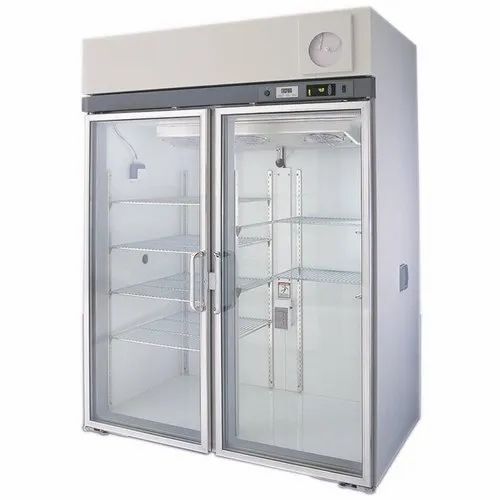Laboratory refrigerators, also known as laboratory fridges, are specialized appliances designed for storing temperature-sensitive materials in a laboratory setting. These fridges are used in various scientific fields, including pharmaceutical, medical, and biological research. They are designed to maintain a consistent temperature range for stored materials, ensuring their integrity and preventing degradation.

In this blog post, we will explore the various types of laboratory refrigerators available in the market.
1. General Purpose Laboratory Refrigerator:
General-purpose laboratory refrigerators are the most common type of fridge used in most scientific laboratories. They are designed to maintain a temperature range of 2°C to 8°C and are ideal for storing a variety of materials, including samples, reagents, and vaccines.
2. Blood Bank Refrigerator:
Blood bank refrigerators are specifically designed to store blood and blood products at a temperature range of 1°C to 6°C. These refrigerators are made with a separate compartment for holding blood bags, making them easy to organize and access.
3. Pharmacy Refrigerator:
Pharmacy refrigerators are designed to store pharmaceutical products that require a specific temperature range. These refrigerators typically maintain a temperature range of 2°C to 8°C and come with adjustable shelves to accommodate different-sized products.
4. Flammable Material Refrigerator:
Flammable material refrigerators are designed to store flammable materials safely. These refrigerators maintain an interior temperature range of 1°C to 10°C, preventing the risk of explosive gases from flammable materials.
5. Explosion-Proof Refrigerator:
An explosion-proof refrigerator is designed to store volatile organic compounds and other flammable chemicals that require an increased level of safety. These refrigerators are designed to prevent any electrical spark that could ignite flammable gases or vapors.
6. Ultra-Low Temperature Freezer:
Ultra-low temperature freezers are designed to store materials at extremely low temperatures, typically between -40°C and -80°C. These freezers are used to store biological samples, vaccines, and other temperature-sensitive materials.
7. Cryogenic Storage System:
Cryogenic storage systems are designed to store materials in cryogenic conditions, typically between -196°C and -150°C. These systems are used to store biological materials, such as cell lines and tissue samples.
Conclusion:
As you can see, there are different types of laboratory refrigerators available to cater to various scientific needs. Choosing the right type of refrigerator for your laboratory largely depends on the kind of materials you plan to store and the necessary temperature range required for their safekeeping. To ensure that your materials are stored under optimal conditions, it is always recommended that you consult with a laboratory equipment supplier before making a purchase.